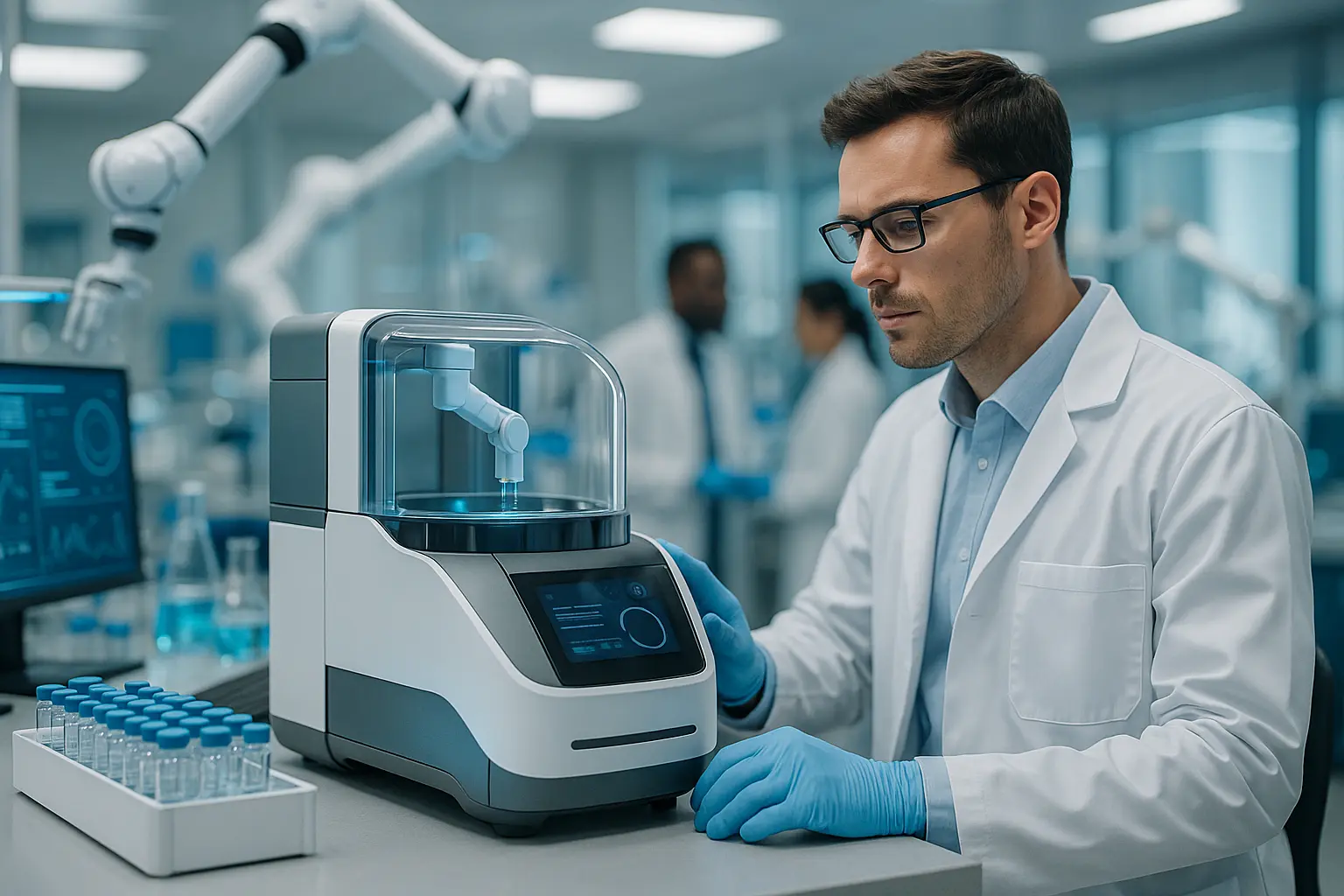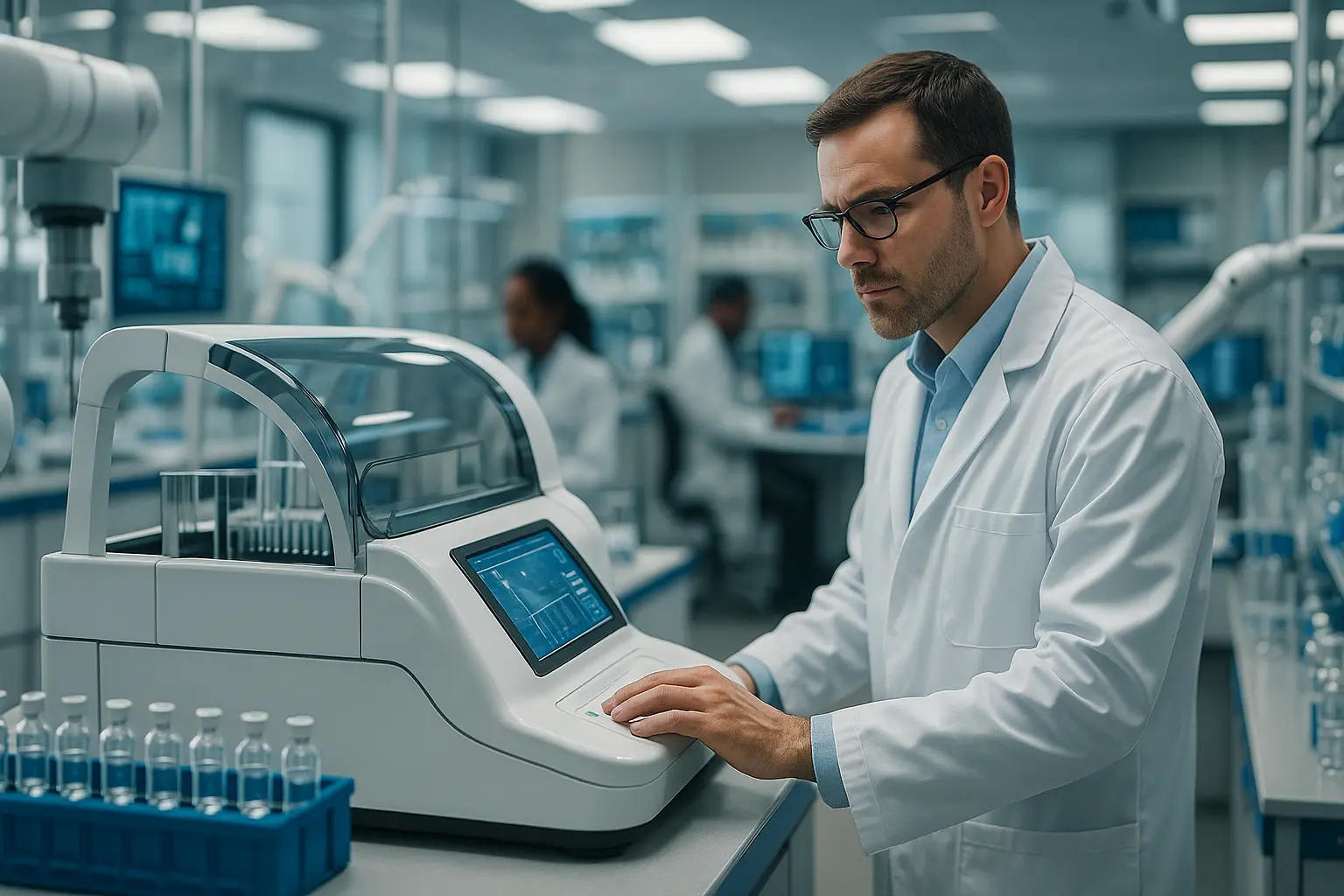Top 10 Breakthroughs in Pharmaceutical Technology You Should Know
Welcome to the vibrant world of pharmaceutical technology! In a rapidly evolving landscape, we find ourselves at the intersection of health and innovation, experiencing transformations that redefine patient care and reshape the very essence of medicine. Today, we’re diving into the top 10 breakthroughs in this dynamic industry, offering insights into how these advancements are revolutionizing pharmaceutical endeavors. Imagine a future where diseases are preemptively identified, treatments are impeccably tailored, and the once complex world of medical development now feels within reach. Join us as we explore the cutting-edge trends that are setting the stage for future healthcare solutions.
1. Revolutionizing Drug Discovery with AI
In recent years, artificial intelligence has emerged as a game-changer, shifting the paradigm of drug discovery. The integration of AI-driven algorithms allows researchers to sift through vast datasets with unprecedented speed and accuracy, pinpointing potential drug candidates that might otherwise remain undiscovered. This advancement has significantly shortened the timeline for pharmaceutical development, making it more efficient and cost-effective.
Gone are the days of trial and error; today, AI technologies harness the power of data to forecast drug interactions, predict side effects, and even customize treatments based on genetic profiles. By leveraging machine learning, we’re witnessing the dawn of precision medicine—a tailored approach that promises to enhance patient outcomes while minimizing risks. These advancements are not just improving the way we develop drugs but also redefining the relationship between healthcare professionals and patients, paving the way for more human-centric care.
2. Digital Health Technologies and Patient Empowerment
In today’s digital age, technology-driven solutions are empowering patients like never before. Gone are the days when healthcare was a one-way street. With the rise of digital health technologies, patients now have the tools to actively participate in their own health journey. Wearable devices, mobile apps, and telemedicine platforms offer real-time insights into one’s medical status, fostering a sense of ownership and responsibility over personal healthcare.
These innovations have democratized access to medical information, allowing individuals to make informed decisions about their treatment plans. Moreover, digital platforms enable seamless communication between patients and providers, ensuring continuity of care and fostering a deeper understanding of patient needs. This shift towards patient-centered care is not just a passing trend—it’s a fundamental transformation that highlights the power of technology in bridging the gap between patients and medical professionals.

3. The Impact of Genomics on Precision Medicine
The integration of genomics into pharmaceutical practices has ushered in a new era of precision medicine. By analyzing the genetic makeup of an individual, scientists can now predict how a patient will respond to specific treatments, paving the way for truly personalized therapies. This breakthrough has the potential to revolutionize the way we approach disease management, shifting the focus from a one-size-fits-all model to a more targeted and effective strategy.
Through advanced sequencing technologies, researchers are unraveling the complexities of the human genome, identifying genetic variants associated with certain conditions and tailoring interventions accordingly. This knowledge not only enhances the efficacy of treatments but also reduces the risk of adverse reactions, ensuring that patients receive the most suitable care for their unique genetic profile. In the coming years, we anticipate that genomics will become an integral part of routine clinical practice, transforming the landscape of healthcare and setting new standards for medical excellence.
4. Transformative Clinical Trials and Real-World Evidence
Clinical trials have long been the backbone of pharmaceutical development, providing the evidence needed to bring new drugs to market. However, the traditional model is evolving, embracing innovative approaches that enhance efficiency and relevance. One significant advancement is the use of real-world evidence, which captures data from everyday settings to supplement the findings of clinical trials.
By integrating real-world data with traditional trial results, we gain a more comprehensive understanding of a drug’s impact across diverse populations. This approach not only shortens the time to market for new therapies but also ensures that treatments are optimized for real-world conditions. Additionally, virtual trials, which utilize digital tools to monitor patient progress remotely, are making it easier for participants to engage in research without the constraints of geographical limitations.
These innovations are reshaping the way we conduct clinical research, heralding a new era of evidence-based medicine that is both inclusive and efficient. As we continue to leverage technology in this realm, we enhance our ability to develop medicine that meets the needs of a global population.
5. The Power of Big Data in Pharmaceutical Innovations
In an era defined by information overload, the ability to harness big data has become a cornerstone of pharmaceutical innovations. With the vast amount of data generated from various sources, including electronic health records, clinical trials, and genomic studies, the potential for breakthroughs is immense.
By employing advanced analytical tools, researchers can extract meaningful insights from this wealth of information, identifying trends, patterns, and correlations that were previously obscured. This data-driven approach enhances our understanding of disease mechanisms, enabling the development of more effective and targeted therapies. Furthermore, big data facilitates the identification of new drug targets, accelerates the drug discovery process, and optimizes clinical trial design.
As we continue to unlock the potential of big data, we are poised to make significant strides in pharmaceutical research, pushing the boundaries of what is possible in healthcare and redefining the future of medicine.
As we stand at the forefront of pharmaceutical technology, it is clear that the innovations of today will shape the health of tomorrow. From AI-driven drug discovery and digital health empowerment to genomic breakthroughs and the transformative power of big data, the pharmaceutical industry is undergoing a profound evolution.
By embracing these advancements, we can enhance clinical outcomes, improve patient experiences, and drive forward the next wave of medical discoveries. As we continue to explore the potential of these technologies, it remains our collective responsibility to ensure that they are leveraged ethically and sustainably, prioritizing patient welfare above all else.
With an open mind and a commitment to innovation, we are not just witnessing the future of pharma; we are actively shaping it, paving the way for a healthier and more connected world.
FAQ
What are some of the most recent breakthroughs in pharmaceutical technology?
Recent advancements in pharmaceutical technology include personalized medicine, where treatments are tailored to individual genetic profiles, and the development of mRNA vaccines, which have been pivotal in combating infectious diseases like COVID-19.
How has artificial intelligence impacted the pharmaceutical industry?
Artificial intelligence (AI) has revolutionized drug discovery and development by analyzing vast datasets to identify potential drug candidates faster and more efficiently than traditional methods.
What role does biotechnology play in modern pharmaceutical advancements?
Biotechnology has been instrumental in creating new therapies, including monoclonal antibodies and gene therapy, which target diseases at the molecular level and offer more precise treatment options.
Can you explain what CRISPR technology is and its significance in pharmaceuticals?
CRISPR technology is a gene-editing tool that allows scientists to modify DNA sequences with high precision, offering promising applications in correcting genetic defects and treating genetic disorders.
What is the impact of nanotechnology on drug delivery systems?
Nanotechnology has enhanced drug delivery systems by enabling targeted delivery of medications at the cellular level, increasing efficacy, and reducing side effects of treatments for various diseases.













